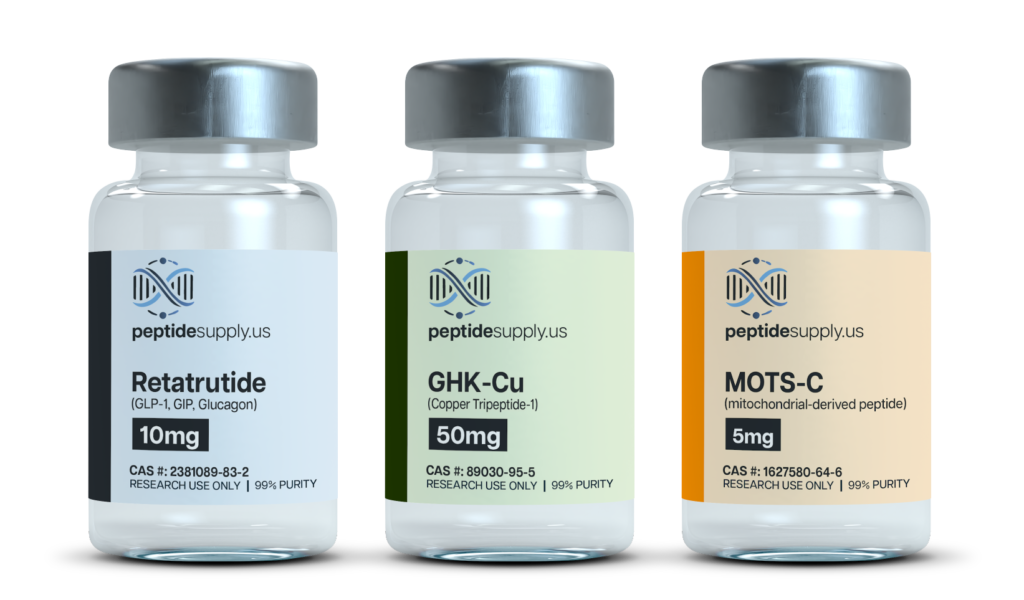FAQs
What are peptides?
Peptides are short chains of amino acids that function as signaling molecules in biological processes such as hormone regulation, immune response, and tissue repair. Researchers study synthetic peptides for their potential applications in scientific and medical fields.
How should peptides be stored?
High purity peptides that are 99% pure are very stable and therefore can last several weeks and even months at room temperature. For the long-term storage, Lyophilized (freeze-dried) peptides should be stored in a cool, dry place, ideally at -20°C to maintain stability. Once reconstituted with a suitable solvent, they should be kept refrigerated at 2-8°C and used within the recommended time frame.
How long do reconstituted peptides last?
Reconstituted peptides should be stored in a refrigerator at 2-8°C and typically remain stable for a few weeks to months, depending on the peptide. Refer to specific storage guidelines for each peptide.
Are peptides legal to purchase?
Peptides are legally sold for research purposes only. However, regulations vary by country, and some peptides may be restricted for human use. Always verify compliance with local laws before purchasing.
What are lyophilized peptides?
Lyophilized peptides are freeze-dried to preserve stability and extend shelf life. This process removes moisture, allowing the peptides to remain viable for long-term storage until reconstitution.
Can peptides be mixed together?
Certain peptides can be combined in research settings, but compatibility depends on their stability and interactions. Researchers should review each peptide’s properties before mixing.
What are the most commonly studied peptides?
Some of the most widely researched peptides include:
•BPC-157 & TB500 – Studied for tissue repair and recovery.
•GLP-1 & Tirzepatide – Investigated for metabolic and weight management research.
•Ipamorelin & CJC-1295 – Explored for growth hormone modulation.
•Thymosin Alpha 1 – Researched for immune function.
•GHK-Cu – Used in studies on skin regeneration and wound healing.
Do peptides expire?
Yes, lyophilized peptides have a shelf life of 12-24 months when stored correctly. Once reconstituted, they should be used within the recommended timeframe to ensure stability and effectiveness.







